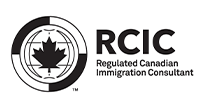
Introduction: Canada has long been a destination of choice for international students seeking to enrich their educational experience and explore diverse cultural landscapes. However, in recent years, the surge in the number of international students has presented challenges that threaten the integrity of the system. To address these issues and ensure sustainable growth, the Government of Canada, under the leadership of the Honourable Marc Miller, Minister of Immigration, Refugees and Citizenship, has unveiled a comprehensive plan to stabilize the international student population.
Key Measures for 2024:
Study Permit Intake Cap:
- In an effort to stabilize new growth, the government will implement a study permit intake cap for a period of two years.
- For 2024, the cap is set at approximately 360,000 approved study permits, marking a 35% decrease from the previous year.
- Provincial and territorial caps have been established, taking into account population weightage, resulting in more significant reductions in provinces with unsustainable international student growth.
- Renewals of existing study permits will not be affected.
- Master’s and doctoral degree students, as well as elementary and secondary education students, are exempt from the cap.
Distribution of Study Permits:
- IRCC (Immigration, Refugees and Citizenship Canada) will allocate a portion of the cap to each province and territory.
- Provinces and territories will further distribute these allocations among their designated learning institutions.
- Effective from January 22, 2024, every study permit application submitted to IRCC will require an attestation letter from a province or territory.
- Provinces and territories are expected to establish a process for issuing attestation letters to students by March 31, 2024.
Future Reassessment:
- These temporary measures will be in place for two years, with a re-assessment of the number of new study permit applications for 2025 at the end of this period.
- Collaboration with provinces, territories, designated learning institutions, and national education stakeholders will continue to develop a sustainable path for international students.
- This includes finalizing a recognized institution framework, determining long-term sustainable international student levels, and ensuring adequate student housing.
Post-Graduation Work Permit Program Changes:
- Starting from September 1, 2024, students enrolled in study programs that are part of a curriculum licensing arrangement will no longer be eligible for post-graduation work permits upon graduation.
- Graduates of master’s degree programs will become eligible for a 3-year work permit, addressing the previous limitation based solely on the program’s length.
- Open work permits will be available only to spouses of international students in master’s and doctoral programs.
Conclusion: The measures announced by the Government of Canada aim to protect the integrity of the international student system while ensuring genuine students receive the support they need. These reforms will foster a more sustainable and enriching study experience in Canada, while also addressing the pressures on housing, healthcare, and other services caused by rapid growth in the international student population. Canada remains committed to welcoming students from around the world and providing them with a world-class education.







